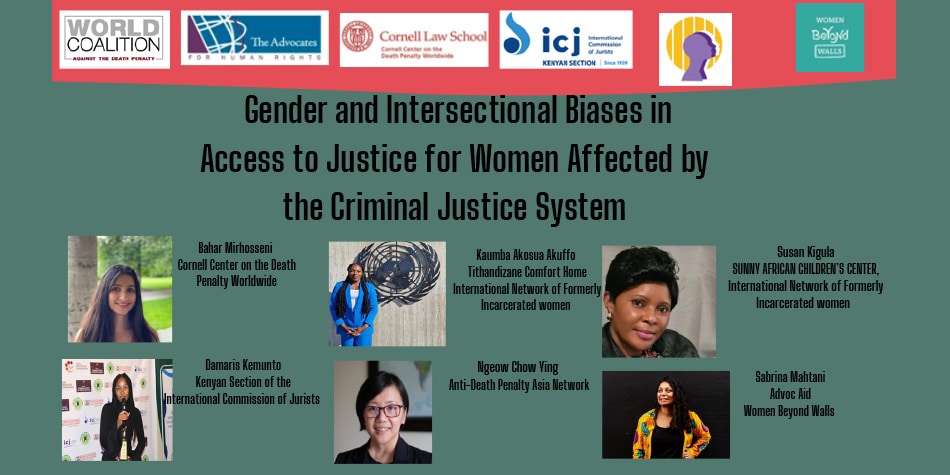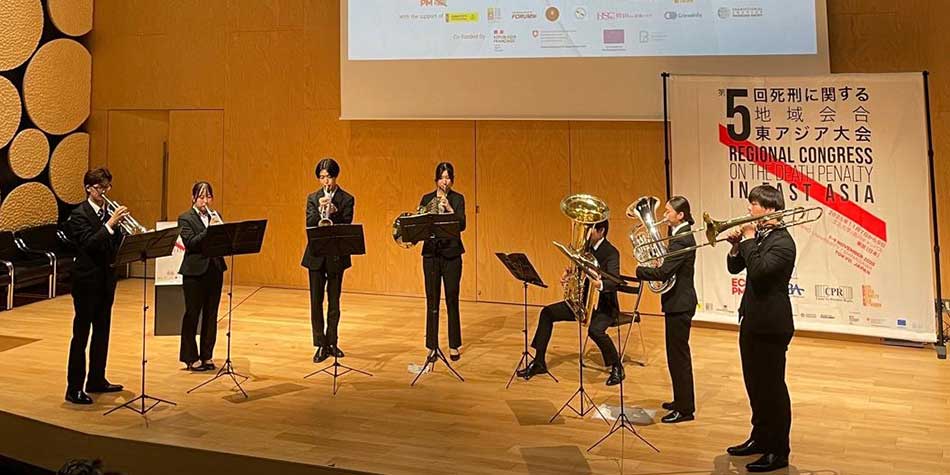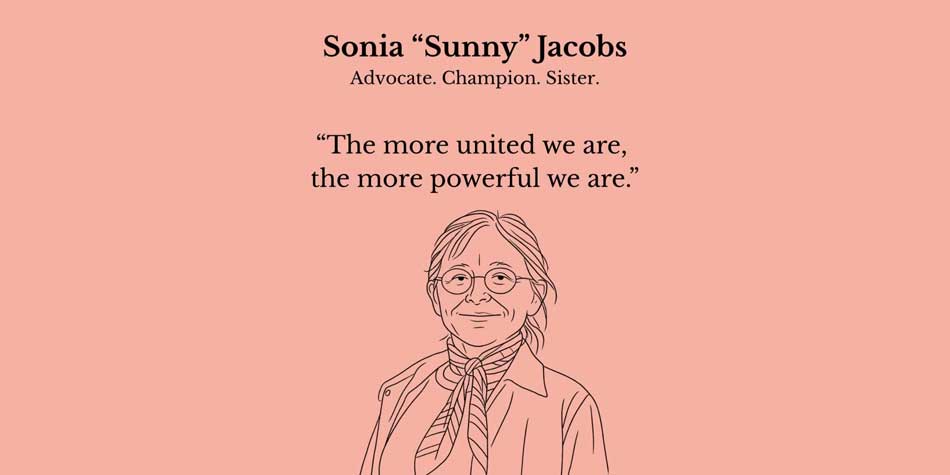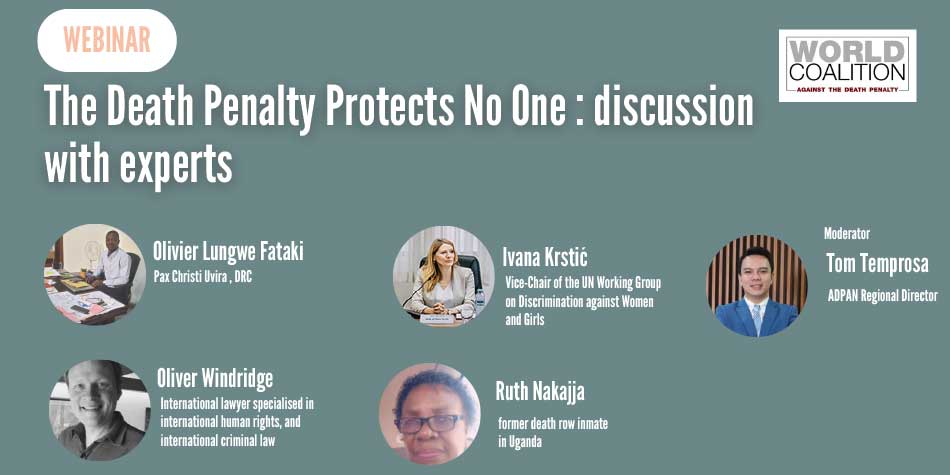
Access to justice and discrimination: the World Coalition organizes a briefing for the UN Working Group on Discrimination against Women and Girls
Advocacy
On September 6, 2024, the World Coalition Against the Death Penalty, in partnership with The Advocates for Human Rights, the Cornell Center on the Death Penalty Worldwide, the International Network of Formerly Incarcerated Women, the Kenyan Section of the International Commission of Jurists, and Women Beyond Walls, held a briefing for the United Nations Working Group on Discrimination against Women and Girls.
The event featured a group of expert panellists, including Bahar Mirhosseni (Cornell Center on the Death Penalty Worldwide), Damaris Kemunto (ICJ Kenya), Kaumba Akosua Akuffo (Tithandizane Comfort Home and the International Network of Formerly Incarcerated Women), Ngeow Chow Ying (Anti-Death Penalty Asia Network), and Susan Kigula (Sunny African Children’s Center and International Network of Formerly Incarcerated Women). Moderated by Sabrina Mahtani of AdvocAid and Women Beyond Walls, the discussion focused on the significant challenges that women affected by the criminal justice system, particularly those facing the death penalty, encounter in accessing legal aid and justice.
WOMEN IMPACTED BY THE CRIMINAL JUSTICE SYSTEM, INCLUDING WOMEN FACING THE DEATH PENALTY, FACE INTERSECTONAL DISCRIMINATON IN ACCESS TO JUSTICE
Women affected by the criminal justice system including those exposed to the death penalty, face significant barriers rooted in discrimination based on gender, race, disability, and socio-economic status. With over 740,000 women imprisoned globally and incarceration rates rising faster for women than men, understand the challenges they face to access justice is crucial.
Bahar Mirhosseni talked about gender bias in judicial decisions, highlighting as an example the case of Brenda Andrew, who was sentenced to death in Oklahoma, where prosecutors relied upon biased gender stereotypes to further their legal arguments. Ngeow Chow Ying gave visibility to discrimination based on the citizenship status. In countries like Malaysia, women sentenced to death are frequently foreign nationals who lack access to consular services and translation at all stages of the legal process, leading the risk of unfair trials.
The panellists also discussed how poverty influences women’s involvement in crime. In Kenya, as in many countries, Damaris Kemunto noted that most women convicted are involved in petty offenses driven by economic hardship. Additionally, the inadequate legal aid services for women petty offenders, particularly during crucial stages like police interrogations, exacerbates their plight. Kaumba Akosua Akuffo shared that in Zambia, women can spend years in pre-trial detention due to minimal legal aid support.
CRITICAL LACK OF FUINDING FOR SUPPORTING WOMEN AFFECTED BY THE JUSTICE SYSTEM
One of the challenges highlighted by the panellists is the shortage of funding for legal aid and support programs for incarcerated women. As mentioned by Sabrina Mahtani, global donor support for access to justice has decreased by 40%, leaving vital legal services severely underfunded. This lack of financial and political prioritization further entrenches the barriers women face, depriving them of the tools and representation necessary to secure fair legal outcomes. For a deeper insight into this issue, see the “Forgotten By Funders” report by Women Beyond Walls.
RECOMMENDATIONS FOR REFORM
Finaly, the panellists highlighted the need for reforms to address systemic injustices faced by women in the criminal justice system. They called for expanding legal aid, especially for economically disadvantaged women, and emphasized the role of community-based paralegals in navigating complex legal systems. They also advocated for gender-sensitive legal approaches that consider the unique challenges women face, such as gender-based violence, trauma, and poverty. Additionally, they urged for alternatives to incarceration, suggesting that imprisonment, particularly for non-violent crimes, should be a last resort in favor of options like community service and probation to reduce prison populations and their impact on women and families.
The brief was very positively received by the experts of the United Nations Working Group on Discrimination against Women and Girls, who reiterated their commitment to these issues and confirmed that access to justice, including for women affected by the criminal justice system as women facing the death penalty, was one of their priorities for the upcoming years.
Categories
Gender






